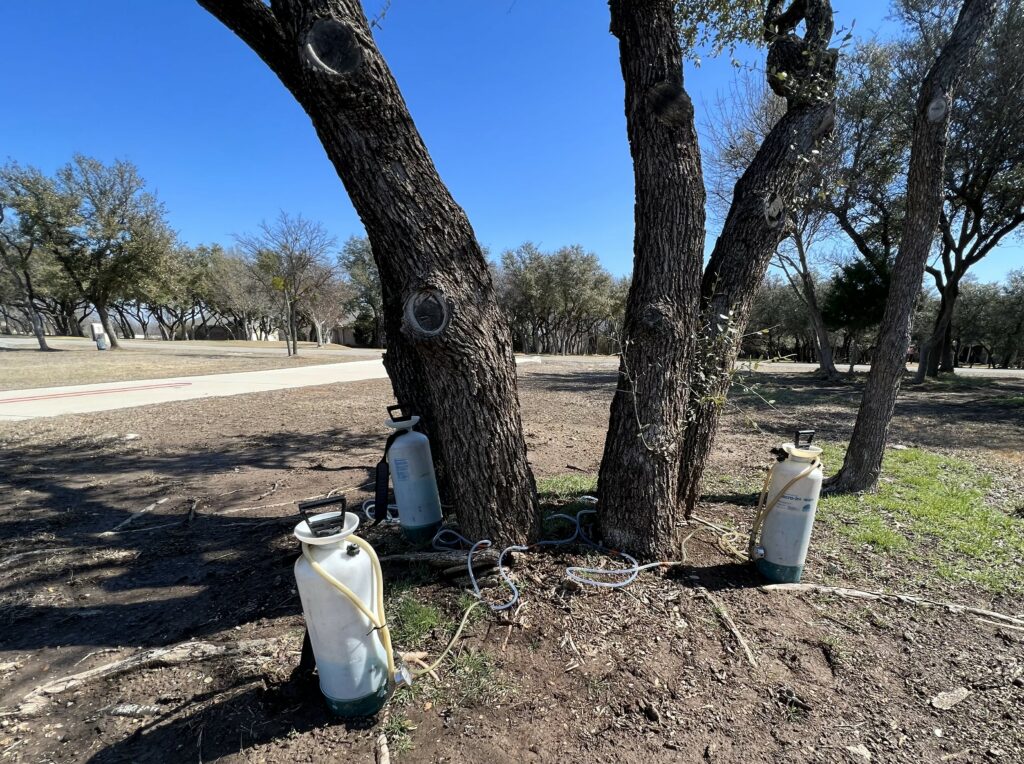This Article Includes Tree Nutrition:
- Introduction
- Essential Nutrients for Trees
- Fertilization: A Key to Tree Health
- Soil Evaluation: Unveiling Nutrient Deficiencies
- Soil Conditioner and Fertilizer Application
- Conclusion
Introduction:
Maintaining the health and longevity of trees is crucial for the well-being of our environment and the aesthetic appeal of our surroundings. In Fort Worth, Texas, where trees are abundant and cherished, understanding the importance of tree nutrition becomes paramount. This article delves into the essential nutrients trees require, the significance of fertilization, and the role of soil evaluation in ensuring optimal tree health.
Essential Nutrients for Trees:
Just like humans, trees require a balanced diet to thrive. The primary nutrients trees need include calcium, magnesium, nitrogen, phosphorus, and potassium. Calcium aids in cell wall development, while magnesium is essential for chlorophyll production.
Nitrogen promotes leaf and stem growth, phosphorus supports root development, and potassium enhances overall tree vigor. Additionally, trees also require trace minerals, such as iron, manganese, and zinc, albeit in smaller quantities.
Fertilization: A Key to Tree Health:
While trees can obtain some nutrients naturally from the soil, it is often insufficient to meet their requirements. This is where fertilization plays a crucial role.
Fertilizers provide trees with the necessary nutrients they may lack in their surroundings. By supplementing the soil with fertilizers, tree owners can ensure their trees receive the essential elements needed for optimal growth and health.
Soil Evaluation: Unveiling Nutrient Deficiencies:
To determine the specific nutrient needs of trees, a thorough soil evaluation is essential. Soil testing helps identify any deficiencies or imbalances in nutrient levels, allowing tree owners to tailor their fertilization approach accordingly.
By understanding the soil’s composition, pH levels, and nutrient content, tree caretakers can make informed decisions about the type and quantity of fertilizers required.
Soil Conditioner and Fertilizer Application:
Once the soil evaluation is complete, the next step is to address any nutrient deficiencies. Soil conditioners, such as organic matter or compost, can improve soil structure and enhance nutrient availability. These amendments help create a favorable environment for tree roots to absorb nutrients effectively.
Additionally, the application of fertilizers, specifically formulated for trees, can provide the necessary nutrients in a balanced manner, promoting healthy growth and resilience.
Conclusion:
In Fort Worth, where trees are treasured for their beauty and environmental benefits, understanding the importance of tree nutrition is vital. By ensuring trees receive the essential nutrients they need, such as calcium, magnesium, nitrogen, phosphorus, potassium, and trace minerals, tree owners can promote their longevity and overall health.
Soil evaluation, coupled with the application of soil conditioners and fertilizers, plays a crucial role in maintaining optimal tree nutrition. By investing in tree nutrition, we can contribute to the well-being of our urban forest and enjoy the beauty of healthy, thriving trees for years to come.

